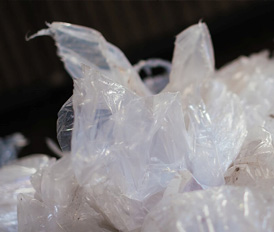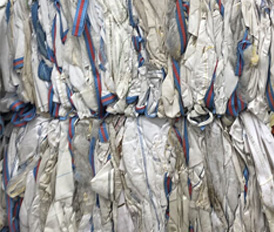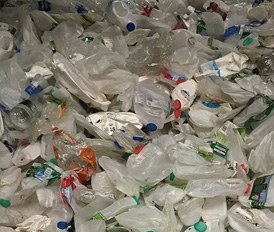Plastic Pollution | We Have Doubled Worldwide Plastic Waste In Last Two Decades
by George Kiernan
Pakire Polymers News
Plastic In Landfill
In February, the Organisation for Economic Co-operation and Development (OECD) published a report entitled ‘Global Plastics Outlook’. This report found that out of all the hundreds of millions of tonnes of plastic waste produced worldwide every year, just 9% of this material is successfully recycled. The majority of these materials end up either going to landfill, being incinerated or becoming pollution in the environment.
The main focus of this report was on the poor collection and disposal of macroplastics and the environmental pollution caused by microplastics. The findings lay the responsibility for these issues at the feet of the inadequate policies currently in place to tackle plastic pollution, with the amount of plastic waste we produce around the world increasing by more than double in just the last two decades. The report does acknowledge that current regulations have been effective in reducing littering, but that overall they have had only a minimal impact in reducing the underlying cause of the problem – our levels of plastic consumption.
Plastic Usage
The OECD puts forward a number of potential solutions to the problem of over consumption of plastic; for example, initiatives such as extended producer responsibility schemes, landfill taxes, deposit-refund and ‘pay-as-you-throw’ systems are all recommended as more effective approaches towards reducing the amount of plastic we use. The need for international cooperation is strongly emphasised, as low- and middle-income countries who lack the resources of larger, richer countries will need support if they are to going to successfully implement more sustainable waste management practices.
The report, which was released ahead of the fifth session of the United Nations Environment Assembly (UNEA 5.2), stated that as much as half of the global plastic waste comes from OECD member countries. It highlighted the fact that the United States alone generates over 220kg of plastic waste per capita every year.
At the beginning of the coronavirus pandemic, worldwide plastic consumption very abruptly dropped by around 2-2.5%. Initially, this was interpreted as potentially being a sign of bigger changes to come; that the pandemic would be such a shock to our lives that we would address things like the amount of plastic we use. However, it didn’t take very long for plastic to rebound; OECD revealed that, due to increased packaging from online shopping, fast food containers, disposable masks and gloves, other disposable medical equipment and other shifting industries, plastic was quickly able to return to and even exceed previous levels of consumption.
Recyclable Plastics
Between 2000 – 2009, the products manufactured using recycled materials more than quadrupled. Whereas this is a move in the right direction, this still only accounts for around 6% of worldwide plastics production. The issue, according to the report, is that recycled plastics are still seen as a substitute for virgin materials in the eyes of both manufacturers and consumers; that the status of the material as being recycled means that the end product will be of an inferior quality. Better education and wider availability of information about recycled plastics is essential to make way in the markets for the use of these materials to grow. As well as education, the report also recommends continuing to invest in recycling technologies as well as setting targets for recycled content in the manufacturing of plastic products.
Alliance To End Plastic Waste
In January, over 70 global brands signed and released a joint statement that called for UNEA 5.2 to establish ‘an ambitious international, legally binding instrument on plastic pollution.’ Last year, the Ellen MacArthur Foundation, a circular economics charity, released a white paper calling for the same thing.
A recent poll by Ipsos found that there is widespread support among the general public for a global plastics treaty, with around 90% of participants saying they support UNEA 5.2 establishing such a treaty.
Advanced Recycling
At Pakire Polymers, we fully support such a treaty. We want to see more countries investing in increasing their recycling capacities and improving their recycling technologies, as well as bringing in tougher regulations that enforce higher levels of recycling and greater use of recycled materials. We work every day to turn plastic scrap back into useable plastic pellet of the highest quality to send it back into manufacturing. Keeping these materials in use within the economy will not only alleviate the plastic pollution problem, but will also help to shift us all towards a more circular economy.
Share article on your social media
More related articles
Work with Us
If you have a passion for recycling and for achieving a sustainable future, then we want to hear from you.





